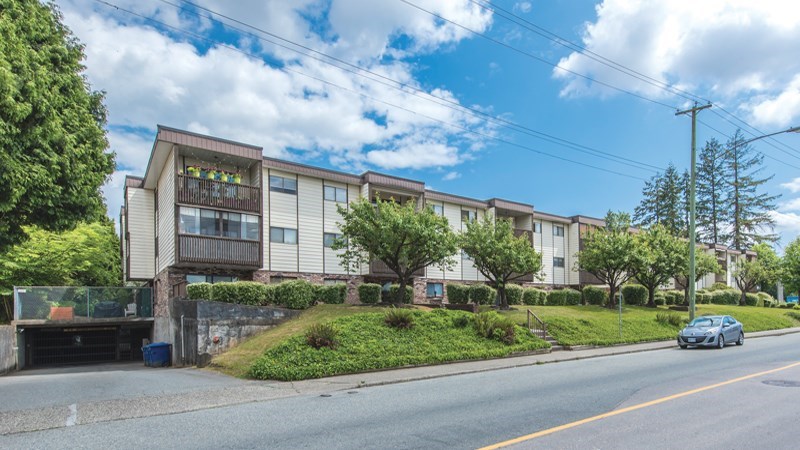New legislation from the B.C. NDP government November 21 to revoke strata bylaws restricting rentals is ultimately intended to lower housing costs but may actually have the opposite effect, among other unintended consequences, critics say.
The Condominium Home Owners Association of BC says its research shows residential stratas with rental restrictions do not have many empty units, whereas stratas without such restrictions have higher vacancy rates.
Association executive director Tony Gioventu wrote to the government during a consultation period on strata property rental bylaws in September, stating, “the expectation that the removal of rental bylaws will result in a solution for rental housing, has no correlation to the statistics.”
Furthermore, by lifting the restrictions, it opens the door to greater speculation on the part of investors, he said.
James Blair, a multi-family real estate specialist with Marcus & Millichap in Vancouver, noted that condo investors are often stymied at buying into higher-end condo locations, such as Point Grey, because of local strata rental restrictions.
Changes to BC’s Strata Property Act in 2016 allow for strata owners to dissolve their strata corporation on an 80 per cent vote for voluntary wind-up, which has spurred developer interest in older strata properties for redevelopment purposes.
CHOA examined over 1,000 strata units in 12 stratas in Vancouver and found properties with rental bylaws average a low vacancy rate of from zero to four per cent.
“There appears to be no compelling benefit to eliminating rental bylaws other than the optics of providing potential rental housing where no vacancies exist, placing the burden of this solution on strata owners across B.C.,” stated Gioventu.
Premier David Eby announced the changes Nov. 20 under his Housing Supply Act. The changes do not impact strata buildings built after 2010, as those were never allowed rental restrictions; instead, they target older buildings that have grandfathered bylaws that could ban rentals, limit rentals or restrict rentals by age.
The province estimates there are about 300,000 strata units that may be subject to such rental bylaws. Based on data from the B.C. speculation and vacancy tax declarations (that largely only apply to major urban cores), there are approximately 2,900 empty condos that cannot be rented out because of bylaws, according to the government.
The idea is to free up more housing, which helps alleviate demand-side pressures on the market and hence improve affordability.
The revised laws still allow stratas to have bylaws banning short-term rentals, such as Airbnbs. Seniors' stratas of over 55 years of age remain exempt.
B.C. Green Leader Sonia Furstenau also foresees a speculative rush on these older strata properties.
“We need to ensure that speculators and investors are not profiting from increased supply. The outcome we must be striving for and measuring is affordable homes for all British Columbians,” Furstenau said in a statement Nov. 21.
Likewise, Gioventu says rental restrictions provide a buffer against “predatory investors” seeking to control strata wind-up votes and thereafter suppress land valuations for the purpose of redeveloping.
“Where rental bylaws exist, developer/buyers generally avoid these tactics as they are left holding property from which they cannot generate any revenue,” he noted.
Meanwhile, Gioventu says there are a suite of other unintended consequences facing stratas now that they cannot restrict rentals.
Smaller strata councils will especially have a greater burden of tenant management, he said, because off-site investors rarely support increase strata fees or special levies or participate in property operations.
“We will now be downloading the unfair work load of managing tenants on the volunteers we charge with the statutory obligations of property operations under the Strata Property Act,” stated Gioventu.
Insurance costs
Insurance costs are also likely to spike if a strata sees greater rentals in it, since “insurers and brokers calculate tenancy capacity when providing policies with an impact on policy rates and deductibles.”
Ron Usher, general counsel for the Society of Notaries Public of BC, says there is “phenomenal liability” for stratas to consider in increasing rentals. He thinks renters should be compelled to obtain insurance, especially for water damage.
Usher also said a possible outcome is that older stratas will be targeted by investors.
Usher questions why those 2,900 units are not being rented, as it stands. He notes the speculation and vacancy tax “has caught all kinds of people with understandable needs” for requiring two homes.
“When you make these tweaks, I would hope there’s some very careful monitoring,” said Usher.
The 2022 tax year is the first tax year the speculation and vacancy tax apply to strata units with rental restrictions, meaning some of those 2,900 property owners may have already been planning to sell or re-occupy their units as primary residences.



